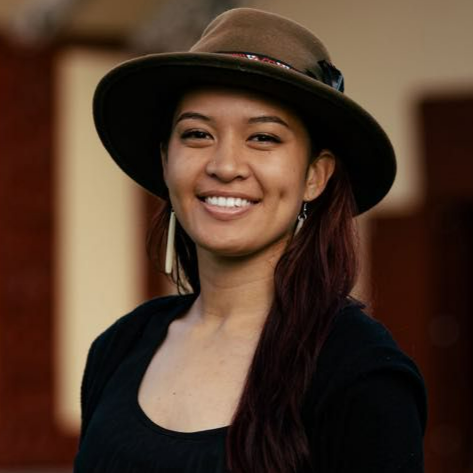A documentary launches this week, exploring the world of deaf Māori in Aotearoa.
This groundbreaking trilingual series showcases all three of Aotearoa’s official languages.
“I was nervous at the beginning, [because] it’s the first time we’ve had a trilingual documentary like this with English, te reo [Māori] and sign language.” director Jared Flitcroft (Ngāti Maniapoto) says.
“I was watching the people and our whānau turi and there were emotions and tears. I bonded with that and just felt I had done a good job.”
The National Foundation for the Deaf estimates 880,00 New Zealanders are affected by hearing loss, with 4600 deaf people using sign language as their primary means of communication.
This five-part documentary series took over a year to produce, and features 15 interviewees from Ngāti Turi (the Turi community) as they discuss their experiences, struggles and triumphs.
“This documentary shows Māori deaf can do anything - the same as hearing. We have our own stories, we have our own strengths, our own mana,” Flitcroft says.
Milton Reedy (Ngāti Porou) also features in Being Turi. He recalls the time he was crossing the road as a child, unaware of the honking cars around him - it was then that his whānau realized he was turi.
“I was born deaf and my mum tried to speak te reo to me when I was a little baby. And of course I didn’t react because I didn’t hear it.”
Reedy would travel from Turanga Nui a Kiwa (Gisborne) to Tamaki Makaurau to attend Ko Taku Reo Deaf Education (formerly known as Kelston School for the Deaf).
Until the early 1990s, many deaf tamariki were discouraged from using sign language. It later became accepted for use in deaf education in 1993 and in 2006 it became an official language in Aotearoa.
“They told my parents there’s a ban on sign [language], [I] must be oral - the only language we had access to was English.”
Learning te reo Māori was one of Flitcroft’s biggest challenges growing up turi in Aotearoa.
“It was too hard because with lip reading, you can’t learn te reo,” he says.
“Also going through what hearing people take for granted in the Māori community, you can hear those things and pick things up - for me, I just can only take in what I can see with my eyes.”
He says the education and health system were also significant barriers for him.
“But now I’m stronger and I’m more resilient, and I think those things have helped me.”
Reedy says that many turi Māori struggle to find equal employment opportunities with the hearing community.
“They look at a hearing person in a very different way. But you know, deaf people can do things - they just can’t hear, that’s all.”
“In fact, this is another opportunity for other people to learn sign, or there’s access to interpreters and there’s other ways that this equality can be achieved.”
Levi Awheto (Taranaki, Ngaruahine, Tauranga Moana) and his whānau travelled from Kirikiriroa to celebrate the series, which features his late mother, Stephanie.
“We’re here today to [embrace] a world that we’ve been part of for the past 30 years - that’s how long my mother was an interpreter for,” he says.
“It’s kind of just a pickup of the mana for our tangata turi who are Māori and have a voice. This series is an eye-opener and I’m hoping that it will catch an audience and the next generation [will feel inspired] to become an interpreter.”
Reedy says his dream would be for te reo Māori and te reo rotarota (sign language) to grow with the next generation.
“I hope to see children born and having access, first to sign language and te reo Māori - both before English.
“I want to see children involved in their marae, having access, having trilingual interpreters and we’ll be able to show the world our Māori deaf world.”
Flitcroft is one of Aotearoa’s only known turi directors, and hopes to continue the Being Turi series.
“We’re really hoping to do season two of Being Turi.”
“There’s more work to be done and I’d like to do more TV shows [using a] trilingual approach to empower the whānau turi community.”
Being Turi Māori is available to stream on Maori Plus.


